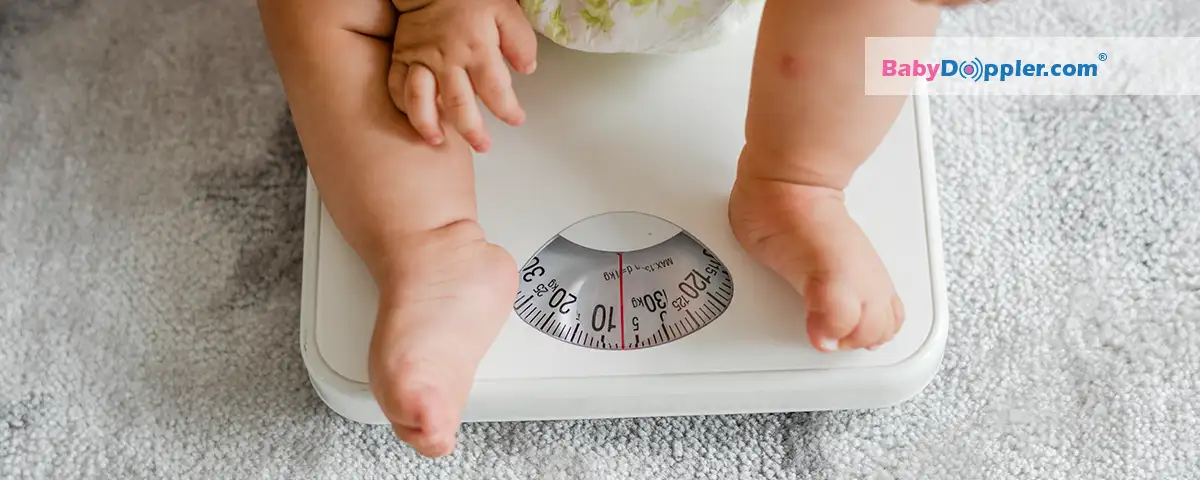A good way of learning if your baby is healthy and growing normally is to check the weight regularly. This way you are sure that your baby is getting all the nutrition it needs. It is a normal practice to weigh babies every month for the first 6 months. When your baby is between 6 months and a year, check the weight once in 2 months, and you can keep checking the weight every 3 months thereafter.
Factors affecting your baby’s weight
Your baby’s weight depends on how close to the due date it was born. A baby that is born premature is bound to be underweight, and one that arrives past the due date will certainly be larger and heavier. Of course, your baby’s weight depends on how healthy you are, and the diet you have been following during your pregnancy and after.
Hereditary factors also play a major role in determining your baby’s weight. It will be closely related to the weight of the parents. If your baby was normal and healthy at birth, the baby’s weight will be normal and progress normally. On the other hand, if your baby has had some complications at birth, it is bound to reflect in its poor weight and nourishment.
What are the guidelines for normal growth?
Not all babies grow in a similar manner. However, there are some guidelines for weight gain, which needs to be healthy and progressive. A normal baby born at full term should double its weight by the fourth month and triple it by the time it is a year old. If it is a male child, the weight should triple in approximately 13 months. A baby girl’s weight gain is a bit slower. It should triple in about 15 months or so. According to The important thing is that all babies are known to grow at their own pace, so just let them be.
Here’s the baby’s growth weight from WHO
Boys
Age (months) Weight (kg)
0 2
3 9
4 9.50
5 10
6 11
Girls
Age (months) Weight (kg)
0 2
3 8.5
4 9
5 10
6 11
View the child growth standards graph here
The First Few Months
The first few months in a baby’s life are crucial. It is common for all babies to lose weight after they are born and mothers need not to worry too much about this. It is quite normal for a healthy baby to lose up to 10 percent of its weight during the first week itself. This is more so with breastfed babies who get smaller amounts of colostrums from the mother’s milk during the first few days.
It is only a few days later that a mother starts producing more wholesome breast milk that helps the baby put on weight and grow in a healthy manner. Once your baby starts drinking breast milk they regain their birth weight within 2 to 3 weeks.
Reasons for Weight Fluctuation
Your baby’s weight is likely to fluctuate if:
- Your baby spends more time sleeping and ends up feeding less
- Mother or child falls ill due to any reason
- Mother is stressed and feels restless
- Your baby gets insufficient breast milk
Maintaining Baby’s Records
It is important to maintain records for your baby’s weight and height. You can opt for BABY DOPPLER MINIMAX BABY SCALE KIT and use it to record your baby’s weight. You need to carry all the records with you while visiting your doctor. Such meticulous records help your doctor check your baby’s health and growth and confirm whether it is within the expected parameters.

